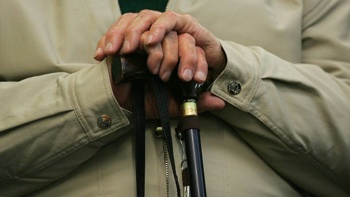
A woman who visited her local emergency department seeking help for leg pain suffered an adverse reaction after she was given a sedative, without fully knowing what it was.
In November 2019 the woman was taken to hospital where she spent an hour and 45 minutes in the corridor with a pain level she described as close to 10 out of 10 before she was placed in an "overflow bed".
She had been given standard pain relief medication in the ambulance on her way to hospital.
Te Whatu Ora - Te Pae Hauora o Ruahine o Tararua MidCentral (formerly MidCentral DHB) has now been found to have breached the Code of Health and Disability Services Consumers Rights, for failing to ensure the woman had enough information to give informed consent to the off-label use of a sedative medication.
In a decision released today, the Deputy Health and Disability Commissioner said the woman visited her ED with pain in her leg during a very busy time.
Without being reviewed by a medical practitioner, she was given droperidol for pain relief by a registered nurse.
The woman stated that if she had been told the drug was a sedative, she would not have given consent as she is a busy mum; she knows sedatives make people sleepy and she "never would have been okay with this".
Droperidol is approved for use as a sedative in New Zealand. Its use as pain relief is considered "off-label". It is recommended that patients are monitored carefully after its administration, but no such monitoring occurred, the report said.
As the prescribing doctor could not be identified, deputy commissioner Deborah James considered the health authority to be responsible for failing to inform the woman.
She said the woman should have been told what was being prescribed, and its primary use as a sedative, side effects, and why it was being prescribed for her as pain relief, including that it was not approved for use as such.
"This was information that a reasonable consumer in Mrs A's circumstances would expect to receive, and needed to receive to give informed consent."
James was also critical that staff failed to monitor the woman after droperidol was administered, despite a clear expectation this should have happened.
A number of recommendations included that the DHB apologise to the woman and provide the HDC with an audit of emergency department medication charts over the past six months.
This was to check the compliance of doctors entering Medical Council of New Zealand registration numbers on the medication chart.
MidCentral DHB said it has since devised a medication charting guideline for patients waiting to be seen in ED, and a list of medications allowed to be given to patients waiting to be seen.
This includes medications which can be given by registered medical officers and which areas of the emergency department are appropriate for the administration of specific medications.
Take your Radio, Podcasts and Music with you









